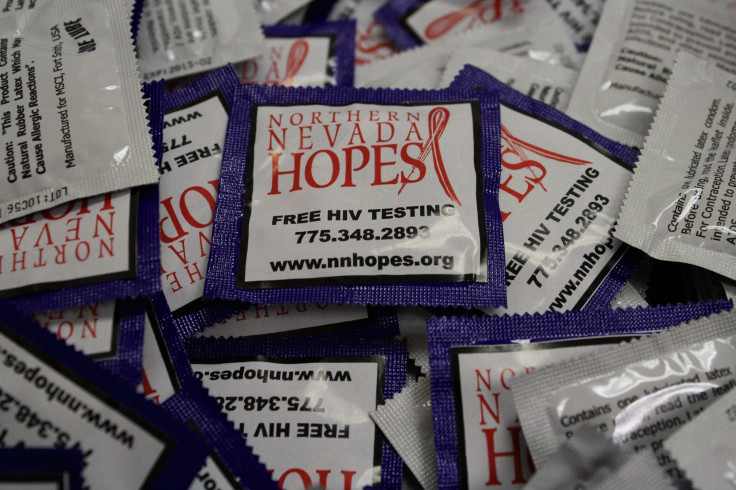Porn Star Spreads HIV After Negative Test Result; CDC Warns Industry Needs More Than Testing

A new report from the Centers for Disease Control and Prevention (CDC) could change the way the adult film industry works to prevent HIV transmission.
The CDC report details the case of patient A, a 25-year-old male performer who recently tested positive for HIV and rectal gonorrhea. Patient A was experiencing typical symptoms associated with acute HIV infection at the time of his examination, including rash, fever, and sore throat. And yet, just 10 days prior, he tested negative for HIV.
This prompted an investigation into the partners' patient A had contact with between the time he received his negative result and his recent examination. Of the 17 named sexual contacts, the CDC found six were chronically HIV-infected; one had sexual contact with patient A before patient A was infected; and 10 were at risk for infection by patient A." And of the seven of 10 partners patient A had unprotected sex with, two became infected.
While the Performer Availability Screening Services (PASS) mandates HIV testing within 14 days of filming, MD Magazine reported tests are unable to detect the virus within the first 14 days of infection.
"PASS failed," said Michael Weinstein, president of the AIDS Healthcare Foundation, in a press release. "And sadly as a result, another individual working in the adult industry is now infected.
For years, Weinstein added, adult film producers have maintained their program is effective and any performers with HIV did not contract HIV at work; however, the CDC's report paints a different picture.
Adult film production companies first check a database to ensure the performers they hire have had a recent negative test before filming, the CDC said. But to partially protect performer privacy, production companies are only informed of whether a performer is cleared to perform (or not) on the basis of test results. Since patient A's onset didn't occur until 10 days after his negative test, companies hired him to perform in "bareback films," which involve condom-less anal sex among male performers. This, unfortunately, is only the beginning of the problem, the CDC said.
"Adult film performers and production companies, medical providers and all persons at risk for HIV should be aware that testing alone is not sufficient to prevent HIV transmission," the authors of the report added.
Employers are required to ensure a safe working environment by law, so the CDC suggests employing multiple strategies to reduce HIV transmission among adult performers. Frequent HIV testing, use of condoms, and some antiretroviral medicines are but a few effective methods the industry can consider. Some antiretroviral drugs have been approved for use as "pre-exposure prophylaxis" (PrEP), a treatment for those who don't have HIV but are at high risk of infection.
"This investigation emphasizes the importance of public health prevention and regulatory strategies to prevent occupational HIV and other STI transmission," the CDC said. "Persons at high risks for HIV infection should require periodic HIV and STI testing. However, as demonstrated here and previously among heterosexual adult film performers, testing along is not sufficient to prevent occupational HIV transmission."
Source: Wilken JA, Ried C, Rickett P, et al. Occupational HIV Transmission Among Male Adult Film Performers — Multiple States, 2014. Morbidity and Mortality Weekly Report. 2016.



























